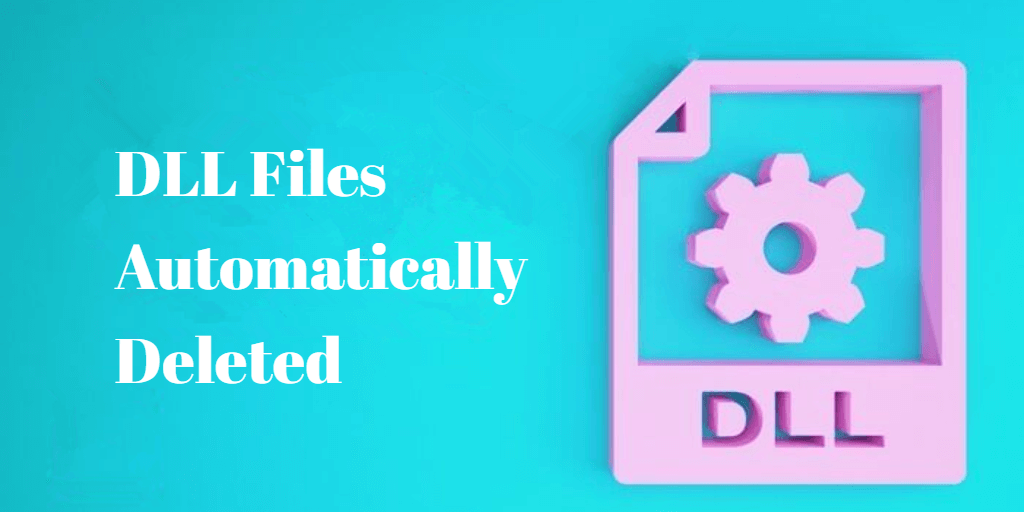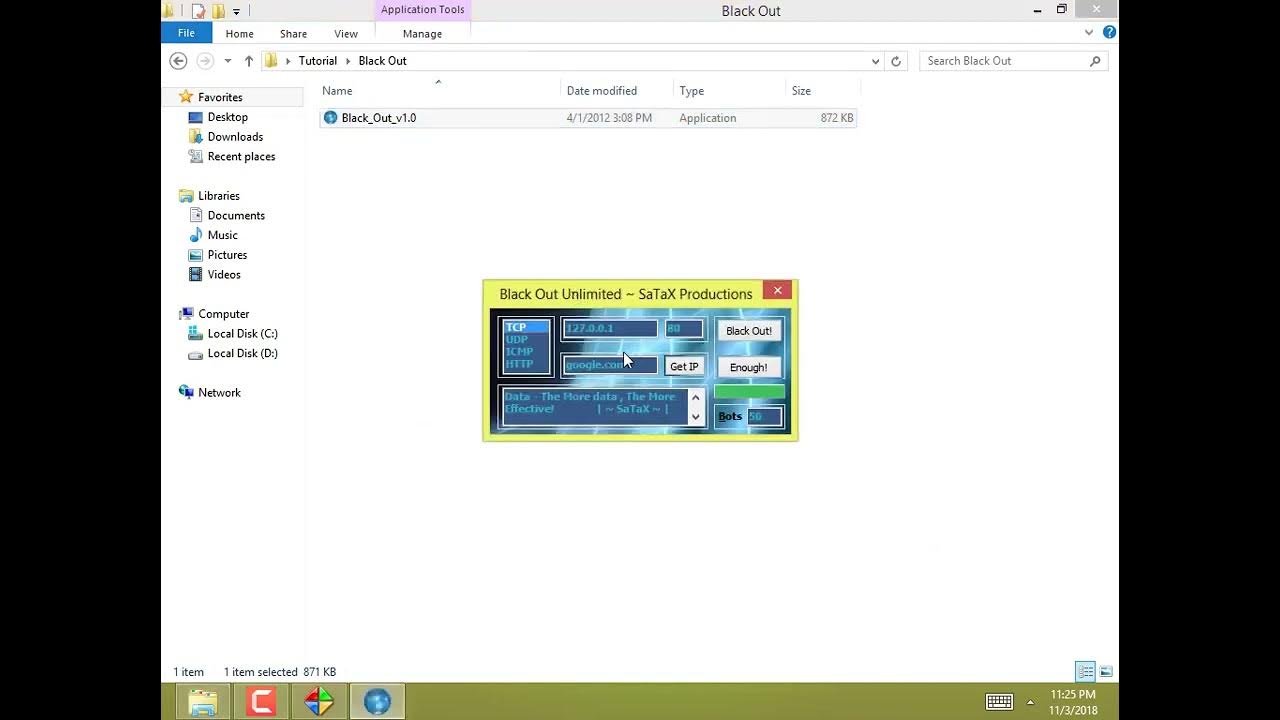Fun Info About What Is The Best Tool To Decompile DLL Files

Unlocking the Secrets Inside
1. Why Peek Inside a DLL?
Ever wondered what makes your favorite software tick? DLL files, or Dynamic Link Libraries, are like little packages of code that programs use to perform specific tasks. They're the unsung heroes, working behind the scenes. Sometimes, though, you might want to see what's inside one of these packages. Maybe you're a curious programmer, trying to understand how a particular feature works. Or perhaps you're troubleshooting a problem and suspect a buggy DLL. Whatever the reason, decompiling a DLL can give you valuable insights.
Think of it like this: imagine you've got a really complicated recipe for, say, the perfect chocolate chip cookie. The DLL is like the pre-mixed dough, and you want to reverse engineer it back to the original ingredients and steps. It's not always easy (or pretty!), but it can be done. And that's where DLL decompilers come in.
But before you dive in, a word of caution: decompiling code that isn't yours, and then using it for your own purposes, could land you in hot water legally. Always make sure you have the right to examine and use the code you decompile. Just like you wouldn't steal someone else's cookies (or cookie recipe!), don't steal their code!
Also, remember that decompiled code rarely looks as clean and tidy as the original source code. It's more like a rough draft, full of comments and optimizations that might be hard to decipher. Be prepared to do some digging and a lot of head-scratching.

How To Edit, Modify, Compile, & EXE File YouTube
Top Contenders in the DLL Decompilation Arena
2. Choosing Your Weapon of Choice
So, you're ready to crack open those DLLs. But with so many decompilers out there, how do you choose the right one? Well, it depends on your needs and your comfort level with different tools. Some are free and open-source, while others are commercial products with more features and support. Let's take a look at some of the popular options.
.NET Reflector: This is a classic choice, especially for decompiling .NET DLLs. It's been around for a while and has a solid reputation. It provides a clear, readable representation of the decompiled code, making it easier to understand the underlying logic. While there used to be a free version, it's now a commercial product, so keep that in mind. Think of it as the Swiss Army knife of .NET decompilers, reliable and versatile.
ILSpy: If you're looking for a free and open-source alternative to .NET Reflector, ILSpy is a great option. It's also designed for .NET DLLs and offers many of the same features, including code navigation, search, and the ability to save the decompiled code to a file. It's like finding a hidden treasure chest of code exploration tools, all without spending a dime!
IDA Pro: Now, this is the heavy hitter. IDA Pro is a powerful disassembler and debugger that can handle a wide range of file formats, including DLLs. It's not just a decompiler; it's a full-fledged reverse engineering tool. However, it comes with a steep learning curve and a hefty price tag. Think of it as the nuclear option — incredibly powerful, but requiring a lot of skill and resources to use effectively. Use this if you are a professional reverse engineer and working on more complex tasks.

Understanding the Decompilation Process
3. From Binary to (Almost) Source Code
Okay, you've picked your tool. Now what? The basic idea is that the decompiler takes the compiled binary code in the DLL and tries to reconstruct the original source code (or something close to it). This involves analyzing the machine instructions, identifying functions and data structures, and converting them into a more human-readable format.
The decompilation process isn't always perfect. Compilers often optimize code in ways that make it difficult to reverse. Also, information like comments and variable names are usually lost during compilation. So, the decompiled code might not look exactly like the original, but it should give you a good idea of what's going on.
Imagine trying to rebuild a Lego castle from just the instructions, but the instructions are faded and some pieces are missing. You can still get a pretty good idea of what the castle looks like, but you might have to make some educated guesses along the way. That's kind of like decompilation.
A crucial element to consider during the decompilation process is error handling. Sometimes, the decompiler might encounter errors or unexpected code structures. This can lead to incomplete or inaccurate decompilation results. Familiarize yourself with the decompiler's error messages and troubleshooting techniques to handle these situations effectively.

Making Sense of Decompiled Code
4. Decoding the Digital Rosetta Stone
So, you've got your decompiled code. Now comes the tricky part: understanding it. Decompiled code can be messy and difficult to read, especially if it's heavily optimized or obfuscated. Be prepared to spend some time studying the code, tracing its execution, and experimenting with different tools and techniques.
One useful technique is to focus on the key functions and data structures. Identify the entry points, the main algorithms, and the important data variables. Try to understand how these elements interact with each other. It's like piecing together a puzzle — start with the corners and edges, then gradually fill in the rest.
Don't be afraid to experiment with different decompilers and settings. Some tools might produce better results than others, depending on the specific DLL and the way it was compiled. Also, try different optimization levels and debugging options to see if they improve the clarity of the decompiled code.
Remember that decompilation is an iterative process. You might not understand everything at first, but with patience and persistence, you can gradually unravel the secrets of the DLL. Think of it as an archaeological dig — you carefully excavate layer by layer, uncovering artifacts and piecing together the history of the code.

Apk Easy Tool And Compile Android Apks
Ethical Considerations and Legal Boundaries
5. Play Fair, Code Clean
Before you go wild decompiling every DLL you see, remember that there are ethical and legal considerations to keep in mind. As mentioned earlier, decompiling code that you don't have the right to access or use is generally a no-no. It's like trespassing on someone else's property — it's not cool, and it could get you into trouble.
Always respect the intellectual property rights of others. If you're unsure whether you have the right to decompile a particular DLL, err on the side of caution and seek legal advice. It's better to be safe than sorry.
Also, be mindful of the potential security risks associated with decompiling code. Decompiled code can reveal vulnerabilities or security flaws that could be exploited by malicious actors. If you discover any such vulnerabilities, it's your responsibility to report them to the vendor or developer of the software.
Think of it like this: you've been given a key to unlock a secret door. You have a responsibility to use that key wisely and ethically. Don't use it to steal, cheat, or cause harm. Use it to learn, understand, and improve the world around you.

راهنمای جامع ۴ روش برای باز کردن فایلهای DLL (با برنامههای نمونه
FAQ
6. Your Burning Questions Answered
Still scratching your head? Let's tackle some common questions about DLL decompilation:
Q: Is decompiling DLLs illegal?A: It depends. Decompiling DLLs is not inherently illegal, but it can be if you violate copyright laws or license agreements. Always ensure you have the right to decompile the specific DLL.
Q: Will decompiling give me the exact original source code?A: Probably not. Decompilers try to reconstruct the source code, but optimizations and lost information during compilation mean it won't be identical. Expect a rough approximation.
Q: Can I decompile any DLL file?A: Most DLL files can be decompiled to some extent. However, some DLLs may be protected by anti-tampering measures or obfuscation techniques, making decompilation more difficult or even impossible.
Q: Is decompiling DLLs safe?A: Be cautious. Decompiled code can contain vulnerabilities. Always analyze decompiled code in a sandboxed environment and be aware of potential security risks.